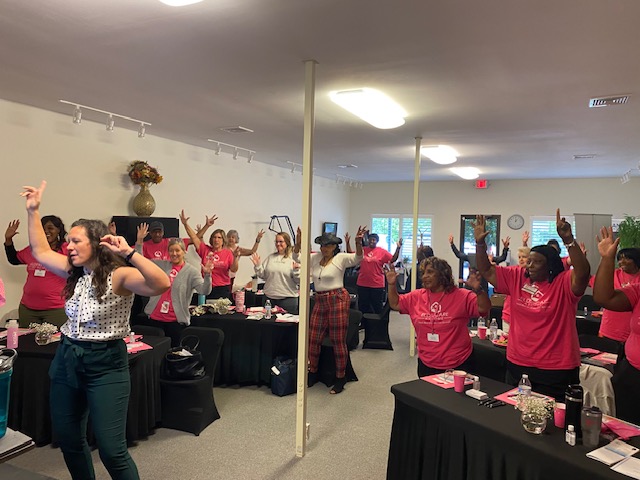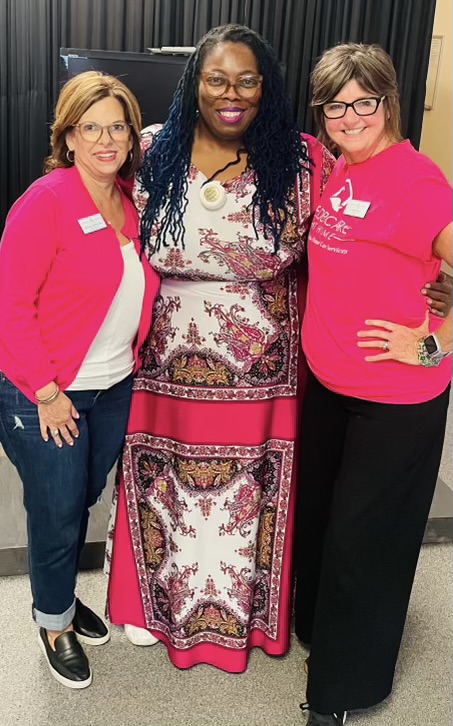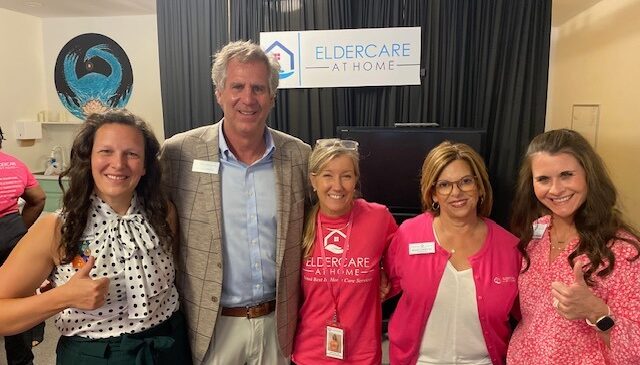Dementia Care: Teepa Snow’s PAC Training at Eldercare at Home
Eldercare At Home recently hosted a dementia skills day featuring Teepa Snow’s Positive Approach to Care (PAC) techniques. The event, held at the Sankofa Training & Wellness Institute on September 7th, 2024, provided caregivers with invaluable tools and strategies to enhance their care for individuals living with dementia.
To dive deeper into the insights and experiences shared during the event, we interviewed Jennie Cortese, RN Executive Director of Eldercare At Home.
Q: What inspired Eldercare At Home to host this Dementia skills day, and how did you decide on the focus of the training
J: Many of our clients have some level of dementia and many caregivers are not specifically trained on skills and techniques in working with this population. We want to provide our caregivers all the tools and techniques to be able to provide care and support for our clients and families in their home setting, safely, and with dignity and compassion.
Q: How did Amanda Bularelli and Christine Browdy incorporate Teepa Snow’s Positive Approach to Care (PAC) techniques into the training?
J: The Positive Approach to Care skills day was very interactive. Our caregivers were paired off and actually performed the techniques together such as: supportive stance, hand under hand, and verbal and visual cues, while recognizing the individual’s state. These methods and techniques foster a safe and positive approach, allowing them to engage in an activity.
Q: What are some of the key skills or techniques that caregivers learned during the training?
J: Our caregivers learned how to support an individual living with brain changes, including the changes in their visual field, while understanding the changes and why. How to approach them in a positive manner, supportive stance, using verbal and visual cues, and the hand under hand method.
Q: Can you explain how the Positive Approach to Care (PAC) methods differ from traditional dementia care approaches?
J: The Positive Approach to Care method focuses on the individuals current retained abilities living with dementia, in combination with missing functions. This approach enables the caregiver to provide support by using methods such as verbal and visual cues, and hand under hand, to foster engagement and participation, rather than agitation, isolation, and dysfunction.
Q: How did the training environment, provided by Sankofa Training & Wellness Institute, contribute to the overall experience?
J: The training environment was warm, spacious, and comfortable, allowing for group activities and interactive participation with the trainers and their co- workers.
Q: Linda Faulkner, CNA, mentioned learning about the ‘deep meaning of brain function. Can you elaborate on how brain function education was integrated into the training?
J: Amanda and Christine presented visually with diagrams the changing brain of different types of dementia and how different parts of the brain affects different motor skills, visual disturbances, judgment and behavior, comprehension and fluctuations in behavior. This set the foundation for understanding the “why” in the individual changes in behaviors.

“It was one of the best seminars I have ever attended. It was so well organized and the atmosphere was fantastic. We all learned the deep meaning of brain function. I was really impressed by that. It was great having everyone come together as a group. We loved seeing our CEO, Russell Herring, attend as well. The day was pure joy!!!” – Linda Faulkner, CNA
Q: What feedback have you received from other participants, and how do they plan to apply these skills in their daily caregiving routines?
J: The feedback from all that attended was extremely positive. Caregivers related to how they can immediately use these skills and techniques into practice while working with their clients. Caregivers expressed their gratitude on Eldercare providing them with such an enriching skills day. Incorporating these techniques not only allows a positive approach to care, but satisfaction for the caregiver, providing the skills and support by our team to provide professional quality care.
Q: How does Eldercare At Home plan to continue supporting caregivers after this training to ensure the ongoing application of the skills they learned?
J: Our Nursing team is supporting the caregivers in the clients homes and incorporating the skills and techniques in each client’s individualized plan of care. Part of our orientation and ongoing education incorporates dementia training. We plan to host additional training sessions, both in person and virtually with specialized trainers, continuing to provide ongoing education to our staff.
Q: In what ways do you think this training has strengthened Eldercare At Home’s ability to provide top-quality care to individuals with dementia?
J: Eldercare’s mission is to provide professional and compassionate care, enriching the lives of the clients and families, while allowing them to stay in the comfort of their home. We recognize the challenges of individuals living with Alzheimer’s and Dementia and the need for training our caregivers to provide specialized care.
J: What sets Eldercare apart is we are committed to providing highly qualified and trained individuals with the best tools to foster customized care including activities, socialization, and companionship. We incorporate a proactive approach to wellness by caring for the physical, mental, social, and nutritional wellness of our clients. We believe that the Teepa Snow’s Positive Approach to Care provides our caregivers the tools to enable the Eldercare team to enhance the lives and relationships of those living with brain changes.








Leave a Reply